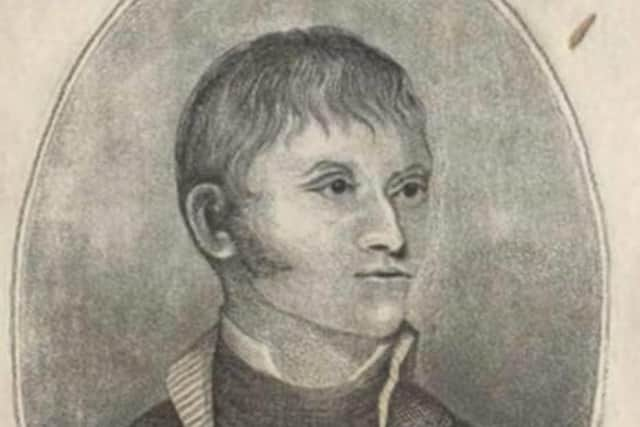The News Letter and The Bard of Dunover (1933)
and live on Freeview channel 276
In 1933 The Roamer carried an interesting story about the News Letter’s connection with one of the The Rhyming Weavers, The Dunover Poet or The Bard of Dunover (Andrew McKenzie) which was by published by Alexander Mackay at “the Belfast News-Letter office in 1810”.
The Roamer wrote: “A colleague has been good enough to lend me Poems and Songs on Different Subjects, written by Andrew McKenzie, the Dunover poet, and published by Alexander Mackay at the Belfast News Letter office in 1810.
Advertisement
Hide AdAdvertisement
Hide Ad“Dunover, a townland in the parish of Ballywalter, was described by McKenzie as no more than a country hamlet, about five miles from Donaghadee.


“McKenzie, as I have stated before, was a handloom weaver. In an evil moment he came to Belfast, where poetry failed to provide him with bread and butter, and his friends obtained for him employment in a humble capacity in the service of the corporation. He died on 10th May, 1859, and was buried in the Shankill Graveyard by William McComb, of High Street, who wrote the following epitaph: 'Here lies beneath this little mound of earth/A child of genius and a man of worth./The winds of heaven awoke his rustic lyre,/And tuneful Nature breathed from every wire./ The world approved his song, but help denied;/ He lived unaided, and neglected died.'”
The Roamer then added details of McKenzie's connections with the Freemasons in Newtownards.
They wrote: “McKcnzie became a member of the Green Hill Masonic Lodge, No 985, on 2nd February, 1810, and in honour of the occasion ho wrote a song to be sung to the tune of 'Lochaber No More'.
Advertisement
Hide AdAdvertisement
Hide Ad“Green Hill was the name of a farm in Drumawhey , near Newtownards, “where a respectable body of Freemasons hold their meetings”.
The Roamer noted that McKenzie had written “There no intemperance, disunion, or misbehaviour casts an odium on the ancient and honourable Order; but men of fair and unblemished characters associate themselves for the purpose of establishing the dominion of virtue.”
The Roamer concluded: “McKenzie's volume also contains a number of stanzas addressed to Robert Anderson, of Cammoney, 'on reading some of his beautiful poems in the Belfast News Letter'.”